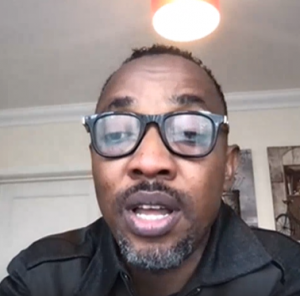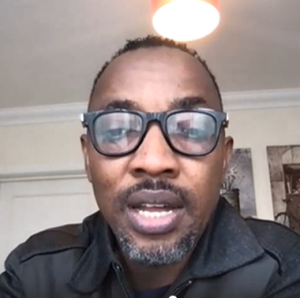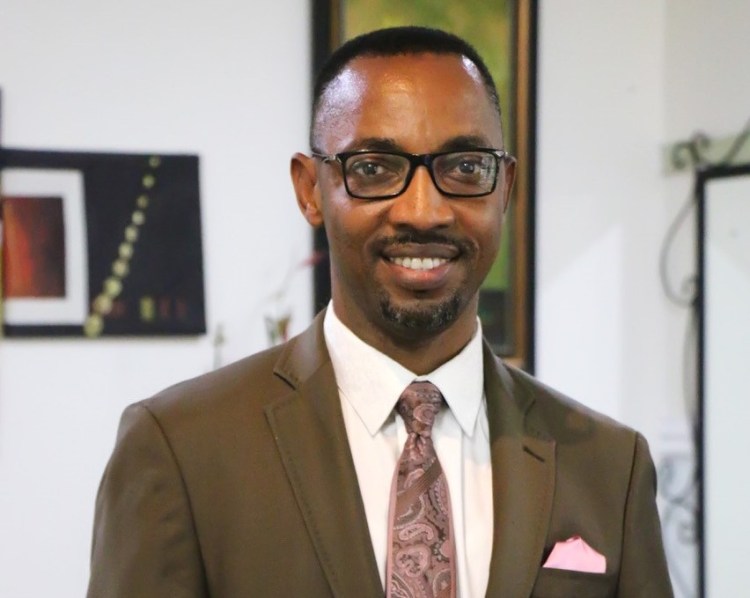In this interview, the Tony Elumelu Foundation sits with Edwin Ikhuoria, the Africa Executive Director for the ONE campaign, who is leading ONE’s advocacy work across the continent. Edwin has spent over 19 years in the development sector, and before Joining ONE in 2014, worked for the Development Impact Evaluation Unit of the World Bank. His advocacy work covers pro-poor policies and transparency in public finance, health, agriculture, food security, environment and trade, engaging Policy Makers and African Civil Society groups regularly in the last 15 years.
Thank you for joining us, Edwin. You have had such an interesting career journey. Can you give us a little history around your career? like?
I got into the development sector working with the National Association of Nigerian traders as a communications and advocacy officer and then moved on to lead the communications and advocacy work for NANTS. In 2009, I joined a USAID project to manage trade and customs reforms for Nigeria, then moved on to World Bank as an Impact Evaluator Researcher in 2012 with the impact evaluation unit of the World Bank called DIME. So, I was at the World bank when the Tony Elumelu Foundation (TEF) funded a position for the ONE Campaign to be the country lead/ representation for Nigeria for the ONE Campaign and that is when I applied and happened to be the lucky candidate who got that position.
It was through that support in 2014 that I joined the ONE campaign and was leading the Nigerian part of that work. It was heavily focused on the agricultural sector because we were advocating for more investment in the agricultural sector. We worked with people like D’banj who led 19 other African Artists to put together the song for the campaign.

With that investment, Nigeria mobilised about N2.1m signup supporters for that campaign, which was almost the biggest campaign to happen at once at that time.
While we did not get the ten percent allocation that we were looking for in the federal government allocation to agriculture, what we got, first of all, was increased investments in terms of public sector allocation to agriculture. This led to the launch of an Agropreneur program by Akinwunmi Adesina who was the Minister of Agriculture, at the time.
After the foundation’s one year grant, I led the programme for three years at ONE in Nigeria and then moved to transparency and accountability for ONE Campaign at the regional level.
How has your experience at ONE shaped your drive around policy and sustainable development?
2018 was the year of winning the fight against corruption at the African level. I was leading ONE’s work in that regard up until 2019 when I came back to the Africa team as the senior advisor for Policy and Advocacy. In 2020, I became the Executive Director. The journey has been quite interesting in terms of advocacy and getting the issues that affect the poorest people to bubble to the top of policy agenda.
The politics of policy making across the continent has been quite intense. As we speak right now, we are trying to mobilise attention to the job creation agenda, the simple reason why that is important to us is that while unemployment was already a big problem before now, right now, we’ve seen record numbers of people losing their jobs on the continent and we believe that if there is any time we should pay attention to job creation at all, this is the time.
Given the impact that the Foundation has made in terms of mobilising entrepreneurs across the continent, this is the time to actually begin to hear the voices of the entrepreneurs themselves in terms of structural barriers preventing them from creating the kind of jobs that they should be creating or doing businesses at the level they should be doing even with the support they have received.
My journey into ONE campaign came as a result of the Tony Elumelu Foundation’s support for Africa and that has allowed me launch out further in that trajectory to where I am today, being the Executive Director for ONE in Africa.
That is impressive. What has been the driving principle for your career so far?
For me, it is: do the most with the opportunity you have now. I think that for me is the biggest one because you should not think that an opportunity is too small. When you do the most with it, other doors begin to open.
Do not discount any experience because you do not know when they show up for you or help you break the glass ceiling. You can learn in many ways – whether it is at the managerial level or at the field level where you are interacting directly with people, you just pick up certain skills by the way you interact with people. You broaden your knowledge base by the kind of subjects you are involved with. It is a principle to make the most of any opportunity I have and that has really helped advance my career.
Any advice to African entrepreneurs starting new businesses during the pandemic?
Innovate, differentiate, or die. Period.
We have to put that on a T-shirt….

If you do not innovate and you do not differentiate, you will simply go out of business because there are many people who are doing or trying to do exactly what you are doing.
If you do not innovate, stand out or differentiate your product/service, you become irrelevant and that is one lesson Covid has taught everybody. The innovators made the most of the pandemic while those stuck in traditional ways died out.
So, if there’s one lesson, it would be: “innovate, differentiate or die.”
How do you think Development Agencies can broaden their understanding of Impact in Africa?
That is spot on, however if I know the how, I am sure they would have already been doing it by now so I do not have the solution for how they would begin to think about it. But should they begin to think about it? Definitely, yes. In fact, the reason why we took on job creation as an agenda, knowing very well that it is not even in the hands of government to create jobs but it’s in the private sector – is about allowing and creating the space for that to happen particularly within the ecosystem of access, infrastructure, opportunity, etc.
What we have seen over the years is that development assistance has catalysed some impact which we cannot dismiss, i.e., polio eradication on the continent. Private sector money couldn’t have done that, and public sector money would run out of steam in a very short time. But donor money ensured that it came in, it was sustained, and it continued until it was ended.
Also in service delivery, certain communities may not have been able to see a borehole if not for development assistance because for the private sector, it is not marketable to put their money and it is not viable. Developmental assistance has done its impact in that regard, but it is very tokenistic and micro, which is why we must begin to think around market driven investments. Investments because that is the only way that we can guarantee returns, not as charity but as investments in people in terms of human capacity and then investment in systems so that they can catalyse growth and the innovation that is inherent in people.
There are two complementary roles in development: the charity element should be strategically targeted at changing systems that will allow private sector investments, innovators, and businesspeople to thrive. Any kind of investment that does not lead to those systemic changes will only be tokenistic, short term and will fizzle out.
My biggest advice is to look at it from this point of view: Nobody is more willing to get out of poverty than the people who are in poverty. If we are trying to end extreme poverty, as someone who is in poverty, I am more eager to get myself out than anybody on the outside, and the only thing you can do is to enable me to do that, not by giving me fish and food to eat –that has its place – but by eating a system that enables me bring myself out of poverty and that is where the investments are called for. How do you empower me to bring myself out of poverty? That can only happen when you create opportunities.
Development agencies should be asking: What are the systemic changes that will enable people create opportunities for themselves? What are the investments that are necessary to give people the access that they need? What are the governance questions that need to be answered to empower people get themselves out of poverty?
While we cannot discount charity, it is time for us to shift towards the place of systemic changes and creating opportunities rather than just giving people fish to eat.
100%. And this is also very much in alignment with what we aim to achieve at the Foundation. What are you looking forward to the most Post-COVID?
The absence of offline advocacy has been the most difficult to deal with so far. I cannot wait to get back to offline advocacy where you are talking to real people at the grassroots to really take action for their own empowerment.
I cannot wait to get back on the ground, interacting with real people getting them to demand the changes they need.
On a personal level, the impact of Covid-19 has been so devastating in terms of economic fallout and insecurity. I can’t wait for things to get to back on track to recovery, empowerment, and development.


